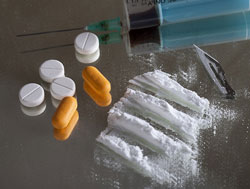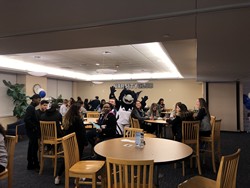In findings reported by Trust For America’s Health, the national health policy organization, New Jersey is the state with the sixth-highest teen drug overdose rate.
Despite the state’s comprehensive laws and regulations against teen substance abuse, there have been a high number of drug overdoses among New Jersey youths. For every 100,000 youths, 10.7 will overdose on drugs, which is more than three people higher than the national average of 7.3.
Additionally, a reliance on substance abuse in one’s teen years is a strong indicator for continued use in adulthood, as more than 90 percent of adult substance abusers began using before age 18. Further, New Jersey is one of 18 states where the overdose rate has doubled since the organization began in 1999-2000, according to NJ.com. At that time, the state’s overdose rate was 4.8 per 100,000.
Senior psychology student Amanda Aynes said that the statistics are disturbing, and something needs to be done to combat this epidemic. “The number of overdoses due to drugs is extremely upsetting and there needs to be a stop to it,” said Aynes. “Instead of trying to figure out how to keep the drugs out of their hands creating more laws, there should be more attention towards increasing their mental health and figuring out what causes the start of the drug addiction.”
Although elementary aged students are introduced to the dangers of drug abuse, there is no school program for people 18-22.
“I personally think that it is a very scary epidemic. This drug is affecting the lives of children, teenagers, and adults alike and is posing a serious threat to the people of NJ. I really think that we need to be distributing a lot more information to the public about these drugs, but we shouldn’t sugar coat the truth about them,” said Jake Marciniak, a junior business student.
“People need to know the horrible reality that is associated with these kinds of drugs and need to be fully educated on the risks associated with them. In terms of law enforcements role in this situation, an active role needs to me taken up, more so than it already is. I know we have had several major heroin related drug busts, but still young men and women are dying from overdoses. There really has to be a high degree of importance placed on the efforts to combat what is happening here in our state, simply to promote and sustain the health and safety of all of the people on NJ”
Junior art student Ava McClendon said that the epidemic serves as a wakeup call, and more assistance programs that help an individual transition from drug abuse to sobriety should be implemented, as there are often underlying circumstance that impact the decision to use drugs.
Although drug use has reached epidemic proportions, Substance Abuse Coordinator Suanne Schaad said there are some helpful programs that continue to fight for New Jersey youths, particularly at Monmouth University. “The 911 overdose protection law of 2013 has helped change how we handle overdoses and has helped save lives. According to the new law, if anyone is under the influence and in need of medical attention, they may call 911 for help without risk of a legal consequence for possession,” said Schaad.
According to Schaad the University has their own Good Samaritan Policy in which students may call for help without fear of a violation. The Office of Substance Awareness.
If a student is afraid to contact authorities in the event of a drug overdose, the Good Samaritan Policy ensures that a life can be saved without the potential consequences.
Monmouth University police officers also carry a nasal spray drug, Narcan, which reverses the effects of an opiate overdose. As a state law, officers can administer the drug to potentially save someone from an overdose.
Additionally, there are organizations on campus that offer guidance to students in recovery.
According to Schaad in 2013, the Office of Substance Awareness created Students in Recovery, a group that provides services for students in recovery or seeking recovery It has grown into a fully recognized club on campus and has just secured a Recovery Lounge space in the Student Center.
Finally, if any student needs counseling for a substance issue, there are resources readily available. “So, I am pleased to say that I think MU is certainly aware of this epidemic and is addressing it. We will continue to raise awareness and offer services for both students in recovery and students questioning their use. Free and Confidential counseling is available for students at the Office of Substance Awareness in the Health Center (732) 263 5804,” said Schaad.
IMAGE TAKEN from crehab.org



